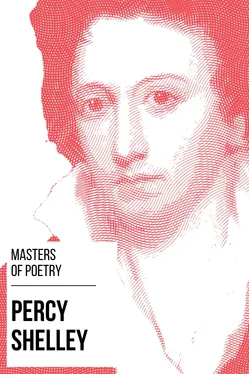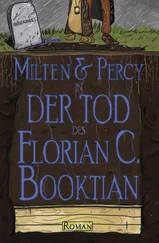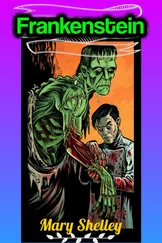When he was ten years of age, Shelley went to school at Sion house, Brentford, an academy kept by Dr. Greenlaw, and frequented by the sons of London tradesmen, who proved but uncongenial companions to his gentle spirit. It is fortunate for posterity that one of his biographers, his second cousin Captain Medwin, was his schoolfellow at Sion House; for to his recollections we owe some details of great value. Medwin tells us that Shelley learned the classic languages almost by intuition, while he seemed to be spending his time in dreaming, now watching the clouds as they sailed across the school-room window, and now scribbling sketches of fir-trees and cedars in memory of Field Place. At this time he was subject to sleep-walking, and, if we may credit this biographer, he often lost himself in reveries not far removed from trance. His favourite amusement was novel-reading; and to the many "blue books" from the Minerva press devoured by him in his boyhood, we may ascribe the style and tone of his first compositions. For physical sports he showed no inclination. "He passed among his school-fellows as a strange and unsocial being; for when a holiday relieved us from our tasks, and the other boys were engaged in such sports as the narrow limits of our prison-court allowed, Shelley, who entered into none of them, would pace backwards and forwards—I think I see him now—along the southern wall, indulging in various vague and undefined ideas, the chaotic elements, if I may say so, of what afterwards produced so beautiful a world."
Two of Shelley's most important biographical compositions undoubtedly refer to this period of his boyhood. The first is the passage in the Prelude to "Laon and Cythna" which describes his suffering among the unsympathetic inmates of a school:—
Thoughts of great deeds were mine, dear Friend, when first
The clouds which wrap this world from youth did pass.
I do remember well the hour which burst
My spirit's sleep: a fresh May-dawn it was,
When I walked forth upon the glittering grass,
And wept, I knew not why; until there rose
From the near school-room, voices, that, alas!
Were but one echo from a world of woes—
The harsh and grating strife of tyrants and of foes.
And then I clasped my hands and looked around—
—But none was near to mock my streaming eyes,
Which poured their warm drops on the sunny ground—
So without shame I spake:—"I will be wise,
And just, and free, and mild, if in me lies
Such power, for I grow weary to behold
The selfish and the strong still tyrannize
Without reproach or check." I then controlled
My tears, my heart grew calm, and I was meek and bold.
And from that hour did I with earnest thought
Heap knowledge from forbidden mines of lore,
Yet nothing that my tyrants knew or taught
I cared to learn, but from that secret store
Wrought linked armour for my soul, before
It might walk forth to war among mankind.
Thus power and hope were strengthened more and more
Within me, till there came upon my mind
A sense of loneliness, a thirst with which I pined.
The second is a fragment on friendship preserved by Hogg. After defining that kind of passionate attachment which often precedes love in fervent natures, he proceeds: "I remember forming an attachment of this kind at school. I cannot recall to my memory the precise epoch at which this took pace; but I imagine it must have been at the age of eleven or twelve. The object of these sentiments was a boy about my own age, of a character eminently generous, brave, and gentle; and the elements of human feeling seemed to have been, from his birth, genially compounded within him. There was a delicacy and a simplicity in his manners, inexpressibly attractive. It has never been my fortune to meet with him since my school-boy days; but either I confound my present recollections with the delusions of past feelings, or he is now a source of honour and utility to every one around him. The tones of his voice were so soft and winning, that every word pierced into my heart; and their pathos was so deep, that in listening to him the tears have involuntarily gushed from my eyes. Such was the being for whom I first experienced the sacred sentiments of friendship." How profound was the impression made on his imagination and his feelings by this early friendship, may again be gathered from a passage in his note upon the antique group of Bacchus and Ampelus at Florence. "Look, the figures are walking with a sauntering and idle pace, and talking to each other as they walk, as you may have seen a younger and an elder boy at school, walking in some grassy spot of the play-ground with that tender friendship for each other which the age inspires."
These extracts prove beyond all question that the first contact with the outer world called into activity two of Shelley's strongest moral qualities—his hatred of tyranny and brutal force in any form, and his profound sentiment of friendship. The admiring love of women, which marked him no less strongly, and which made him second only to Shakespere in the sympathetic delineation of a noble feminine ideal, had been already developed by his deep affection for his mother and sisters. It is said that he could not receive a letter from them without manifest joy.
"Shelley," says Medwin, "was at this time tall for his age, slightly and delicately built, and rather narrow-chested, with a complexion fair and ruddy, a face rather long than oval. His features, not regularly handsome, were set off by a profusion of silky brown hair, that curled naturally. The expression of his countenance was one of exceeding sweetness and innocence. His blue eyes were very large and prominent. They were at times, when he was abstracted, as he often was in contemplation, dull, and as it were, insensible to external objects; at others they flashed with the fire of intelligence. His voice was soft and low, but broken in its tones,—when anything much interested him, harsh and immodulated; and this peculiarity he never lost. He was naturally calm, but when he heard of or read of some flagrant act of injustice, oppression, or cruelty, then indeed the sharpest marks of horror and indignation were visible in his countenance."
Such as the child was, we shall find the man to have remained unaltered through the short space of life allowed him. Loving, innocent, sensitive, secluded from the vulgar concerns of his companions, strongly moralized after a peculiar and inborn type of excellence, drawing his inspirations from Nature and from his own soul in solitude, Shelley passed across the stage of this world, attended by a splendid vision which sustained him at a perilous height above the kindly race of men. The penalty of this isolation he suffered in many painful episodes. The reward he reaped in a measure of more authentic prophecy, and in a nobler realization of his best self, than could be claimed by any of his immediate contemporaries.
ETON AND OXFORD
In 1805 Shelley went from Sion House to Eton. At this time Dr. Keate was headmaster and Shelley's tutor was a Mr. Bethel, "one of the dullest men in the establishment." At Eton Shelley was not popular either with his teachers or his elder school-fellows, although the boys of his own age are said to have adored him. "He was all passion," writes Mrs. Shelley; "passionate in his resistance to an injury, passionate in his love:" and this vehemence of temperament he displayed by organizing a rebellion against fagging, which no doubt won for him the applause of his juniors and equals. It was not to be expected that a lad intolerant of rule and disregardful of restriction, who neglected punctuality in the performance of his exercises, while he spent his leisure in translating half of Pliny's history, should win the approbation of pedagogues. At the same time the inspired opponent of the fagging system, the scorner of games and muscular amusements, could not hope to find much favour with such martinets of juvenile convention as a public school is wont to breed. At Eton, as elsewhere, Shelley's uncompromising spirit brought him into inconvenient contact with a world of vulgar usage, while his lively fancy invested the commonplaces of reality with dark hues borrowed from his own imagination. Mrs. Shelley says of him, "Tamed by affection, but unconquered by blows, what chance was there that Shelley should be happy at a public school?" This sentence probably contains the pith of what he afterwards remembered of his own school life, and there is no doubt that a nature like his, at once loving and high-spirited, had much to suffer. It was a mistake, however, to suppose that at Eton there were any serious blows to bear, or to assume that laws of love which might have led a spirit so gentle as Shelley's, were adapted to the common stuff of which the English boy is formed. The latter mistake Shelley made continually throughout his youth; and only the advance of years tempered his passionate enthusiasm into a sober zeal for the improvement of mankind by rational methods. We may also trace at this early epoch of his life that untamed intellectual ambition—that neglect of the immediate and detailed for the transcendental and universal—which was a marked characteristic of his genius, leading him to fly at the highest while he overleaped the facts of ordinary human life. "From his earliest years," says Mrs. Shelley, "all his amusements and occupations were of a daring, and in one sense of the term, lawless nature. He delighted to exert his powers, not as a boy, but as a man; and so with manly powers and childish wit, he dared and achieved attempts that none of his comrades could even have conceived. His understanding and the early development of imagination never permitted him to mingle in childish plays; and his natural aversion to tyranny prevented him from paying due attention to his school duties. But he was always actively employed; and although his endeavours were prosecuted with puerile precipitancy, yet his aim and thoughts were constantly directed to those great objects which have employed the thoughts of the greatest among men; and though his studies were not followed up according to school discipline, they were not the less diligently applied to." This high-soaring ambition was the source both of his weakness and his strength in art, as well as in his commerce with the world of men. The boy who despised discipline and sought to extort her secrets from nature by magic, was destined to become the philanthropist who dreamed of revolutionizing society by eloquence, and the poet who invented in "Prometheus Unbound" forms of grandeur too colossal to be animated with dramatic life.
Читать дальше












